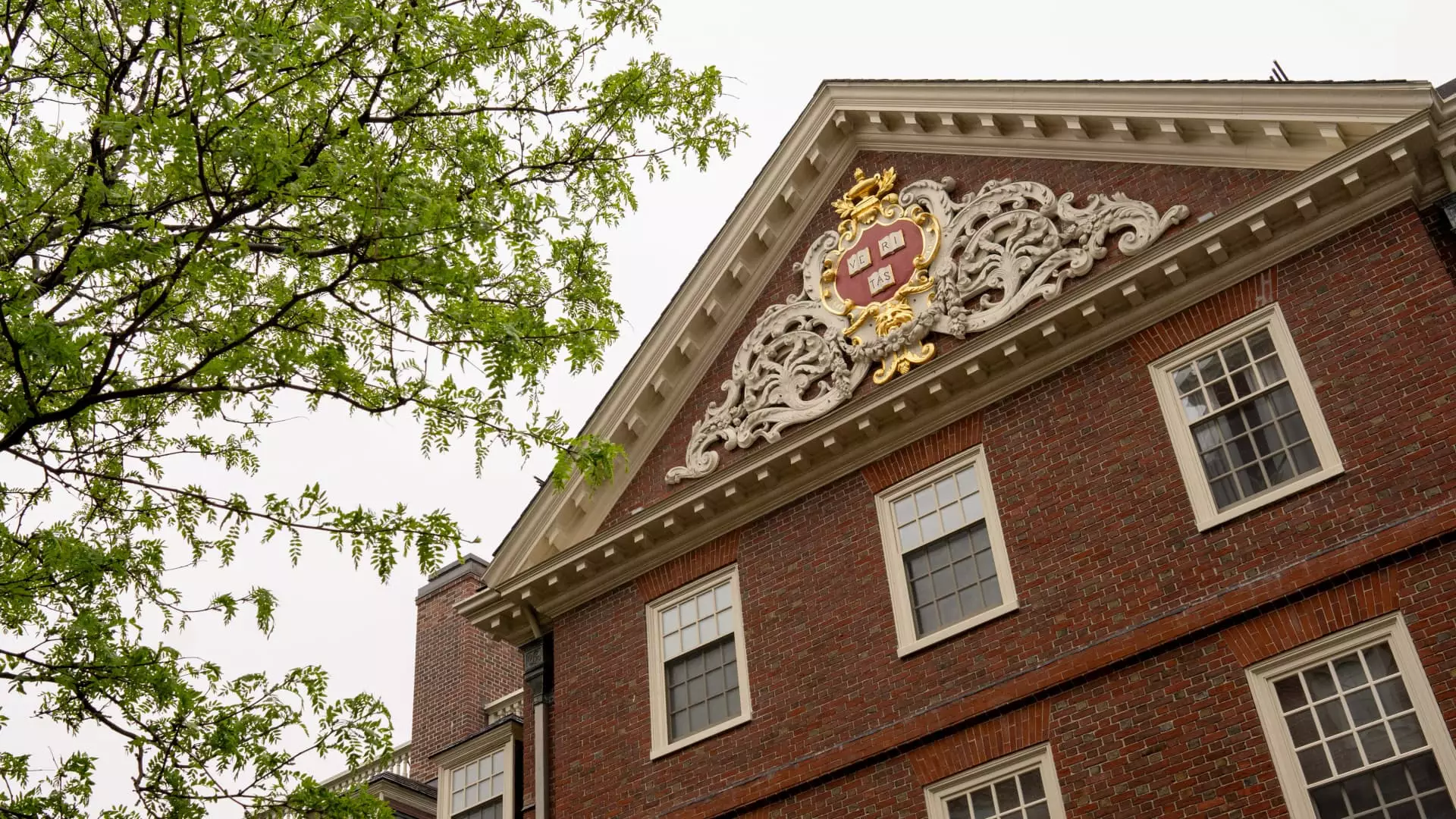In an alarming show of political might, former President Donald Trump recently hinted at repurposing $3 billion in federal research grants from the prestigious Harvard University to bolster trade schools. This revelation, made on his social media platform Truth Social, is not merely a move to promote vocational training; it is reflective of a broader strategy by the Trump administration to exert control over academic institutions that have openly resisted his ideology. By proposing such a significant financial maneuver, Trump is aiming to punish institutions he perceives as havens for “Radical Left idiots” and ideologies at odds with his vision of America.
This proposal is enveloped in the larger context of Trump’s attacks on higher education, which he and many of his supporters view as centers of liberal elitism. However, his actions threaten to undermine the very fabric of academic freedom. Universities like Harvard are pivotal not only for their contributions to research and education but also as venues for critical thought and dissent. By freezing federal grants and threatening to strip away funding based on political allegiance, Trump sets a dangerous precedent that undermines intellectual inquiry and impedes progress.
Scientific Integrity vs. Political Vendetta
The implications of Trump’s actions are particularly concerning for scientific research. The grants he aims to redirect primarily serve the National Institutes of Health (NIH), funding critical biomedical research that translates into meaningful advancements in healthcare and technology. The idea that this funding could be shifted away from research institutions to trade schools appears as not just misguided but dangerously punitive. How can the cutting-edge scientific advances that benefit all of society emerge from institutions that lack the same rigorous academic frameworks?
Furthermore, the administration’s attempts to block Harvard’s enrollment of foreign students are indicative of an administration that is motivated more by vendetta than by a genuine interest in educational equity or vocational training. International scholars contribute to a culturally and intellectually rich environment that enhances learning and innovation. To reject their presence is to stifle diversity and cripple the research potential that results from a myriad of perspectives and backgrounds.
The Assault on Free Speech and Autonomy
Harvard University has pushed back against these politically charged initiatives by declaring them unconstitutional and an infringement on academic freedom. The university’s lawsuit against the federal government underlines a critical point: the autonomy of educational institutions must remain unimpeded by political agendas. Trump’s tactics—hurling accusations of bias and threatening financial repercussions—are part of a worrying trend that seeks to intimidate not only Harvard but all educational institutions into compliance with his administration’s ideologies.
The court’s temporary ruling to block Harvard’s inability to enroll foreign students highlights the judiciary’s role in defending the principles of free speech and academic freedom against executive overreach. Without this legal safeguard, the future of higher education could devolve into a landscape where allegiance to a single ideology dictates funding and scholarly work, reducing educational institutions to mere extensions of political will.
The Broader Impact of Trump’s Educational Policies
The broader implications of Trump’s assault on academia extend far beyond Harvard. His administration’s proposals, including an investigation into whether the university discriminates against men and minorities, signify an effort to reshape the educational landscape along partisan lines. However, this oversimplification of the complexities surrounding educational institutions is not just reckless—it is harmful. Education should empower individuals to think critically, challenge the status quo, and drive innovation. Instead, Trump’s campaign risks transforming critical discourse into a partisan battleground where dissent is quashed and diversity of thought is stifled.
Ultimately, the ideological battle surrounding higher education must be recognized as more than a policy dispute; it is a clash over the very essence of what it means to educate and innovate in a free society. The defense of academic freedom is paramount, not just for the institutions of higher learning but for the cultivation of informed citizens capable of contributing meaningfully to our democracy. Trump’s agenda threatens this vital aspect of our intellectual landscape, and it requires the collective pushback of not just academic institutions but also a principled society that values intellectual diversity and freedom.


Leave a Reply